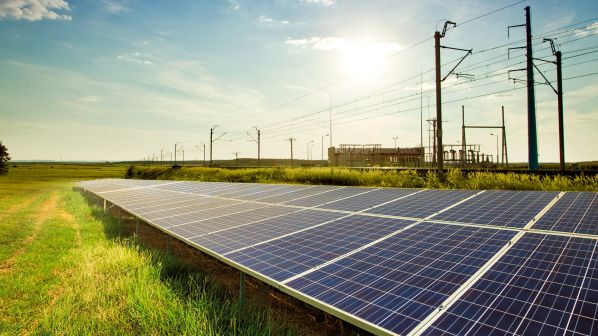POLISH electricity distributor PKP Power Engineering, which operates the power supply network for the national railway network and distributes electricity to operators and infrastructure manager PKP PLK, has installed photovoltaic facilities at 345 of its substations in the past 18 months, reaching its goal to install 360 solar panel systems.
PKP Power Engineering now has 11,000m2 of panels in operation with the potential to generate nearly 2GWh per year, with more than 70% of traction substations now equipped with solar panels.
The project had a budget of more than Zloty 15m ($US 3.3m).
PKP Power Engineering’s long-term strategy is to reduce its carbon footprint by 85% by 2030 and become climate neutral in terms of direct and indirect emissions. The solar panels will reduce the company’s carbon footprint by more than 1500 tonnes of CO2 per year.
PKP Power Engineering has installed 227 of the systems on roofs, while 133 are at ground level. A total of 51 have been installed in the Wielkopolskie region, while 42 have been installed in Dolnośląskie. The location of each system was selected to maximize efficiency and performance. PKP Power Engineering selected polycrystalline technology for the panels to reduce the “lake effect” that can affect birds flying over the panels.
Producing energy from a standalone renewable source also increases the security of the power supply, as substation equipment can work even when the energy grid supply is down. The substations have also been equipped with sensors, inverters, energy meters and GSM modems to collect comprehensive data on system performance and efficiency.
“PKP Power Engineering’s mission is to support the development of the Polish railway system in harmony with nature,” says PKP Power Engineering management board member, Mr Marek Kleszczewski. “We take the lead in this transformation and strive to become an environmentally-neutral company.
“It would take 750 tonnes of coal to produce the energy we get from the sun. The scale and pace of project implementation were very ambitious, and the whole undertaking was achieved thanks to the work and commitment of the entire PKP Power Engineering team.”
PKP Power Engineering’s plans for a shift to renewals were outlined in a feature article that appeared in the March 2022 edition of IRJ. Digital subscribers can read it here.

